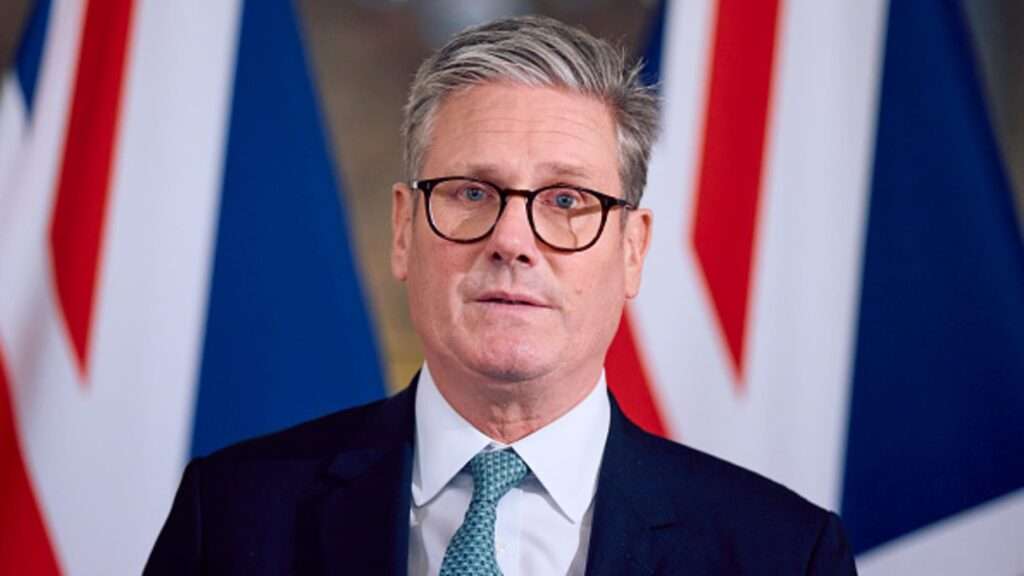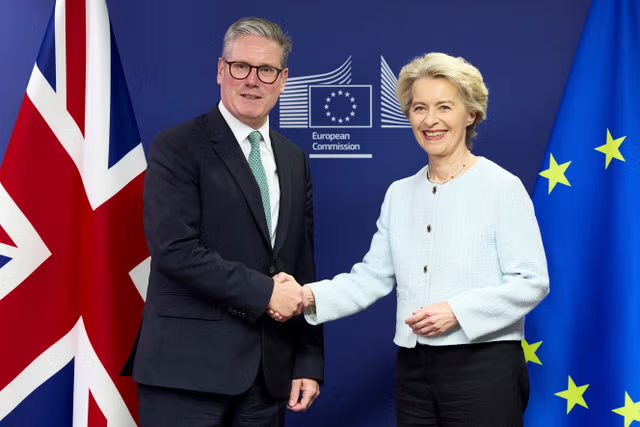As Britain continues to pay the price of Brexit, the financial burden of leaving the European Union has come under renewed scrutiny.
The UK has already spent £24bn withdrawing from the bloc, with an additional £6.4bn still to be paid, sparking calls for an inquiry into the actual costs and future opportunities for closer ties with the EU. Prime Minister Sir Keir Starmer faces mounting pressure to address these concerns as he embarks on a “reset” of Britain’s relationship with Brussels.
The eye-watering figures, revealed by Treasury minister Tulip Siddiq, were disclosed in response to a parliamentary question. The sum includes a £23.8bn “financial settlement” paid to the EU and a further estimated £6.4bn to meet pre-existing financial commitments.
The timing could not be worse for Starmer’s government, as it grapples with a £22bn “black hole” in the national finances, prompting warnings of “difficult decisions on spending, welfare, and tax.”
Critics from across the political spectrum have expressed their outrage. SNP MP Stephen Gethins, who submitted the written question, said the financial toll of Brexit was becoming increasingly apparent.
He remarked, “Brexit has been disastrous for the UK economy and broader society. It takes away rights and opportunities that my generation took for granted.” Gethins accused Starmer of perpetuating a “hard Tory Brexit” that deprives the country of funds at a time when public services are already strained.
Amid this growing discontent, campaigners have urged Starmer to reconsider the government’s approach to Brexit. Naomi Smith, CEO of Best for Britain, highlighted the broader consequences of leaving the EU, not just in terms of money but also “economic growth, opportunities for young people, and influence on the world stage.”
She stressed the importance of reversing the negative trends of Brexit and finding ways to re-establish ties with Europe.
Calls for Closer EU Ties
Emma Knaggs, deputy chief executive of the European Movement, echoed these sentiments, calling for a comprehensive inquiry into the long-term effects of Brexit. “We remain in the dark about the full extent of the impact of leaving the EU,” she said, pointing to areas such as the economy, the NHS, and the cost of living as critical areas that have suffered since Brexit.
“We need an independent, forward-looking inquiry on the UK’s relationship with Europe to identify those opportunities and rebuild closer bonds.”
Emma Knaggs
As Starmer attempts to rebuild ties with the EU, his approach has drawn praise and criticism. His promise to “put the Brexit years behind us” was met with optimism, especially his push for a youth mobility scheme allowing young people to work and travel across the EU.

However, his red lines on rejoining the single market and customs union remain contentious, with experts warning that his approach might fall short of the sweeping reforms needed to repair the economic damage caused by Brexit.
In a recent report, the Resolution Foundation think tank raised concerns that these self-imposed restrictions hinder Starmer’s negotiations with the EU.
Sophie Hale, principal economist at the think tank, emphasized that while rebuilding ties could boost growth, the prime minister’s refusal to consider closer integration with the EU’s trading structures weakens his ability to deliver significant economic improvements. “It will take more than friendlier meetings and a few small-scale tweaks for farmers and touring musicians to shift the economic dial,” she said.
Despite these challenges, the government remains committed to resetting relations with Europe. A government spokesperson insisted that efforts are underway to “strengthen ties, secure a broad-based security pact, and tackle barriers to trade.”
However, for many, the question remains whether this reset will be enough to undo the damage of Brexit or whether deeper, more fundamental changes will be required.
READ ALSO: Dafeamekpor Disagrees with the Rulings of the Supreme Court





















